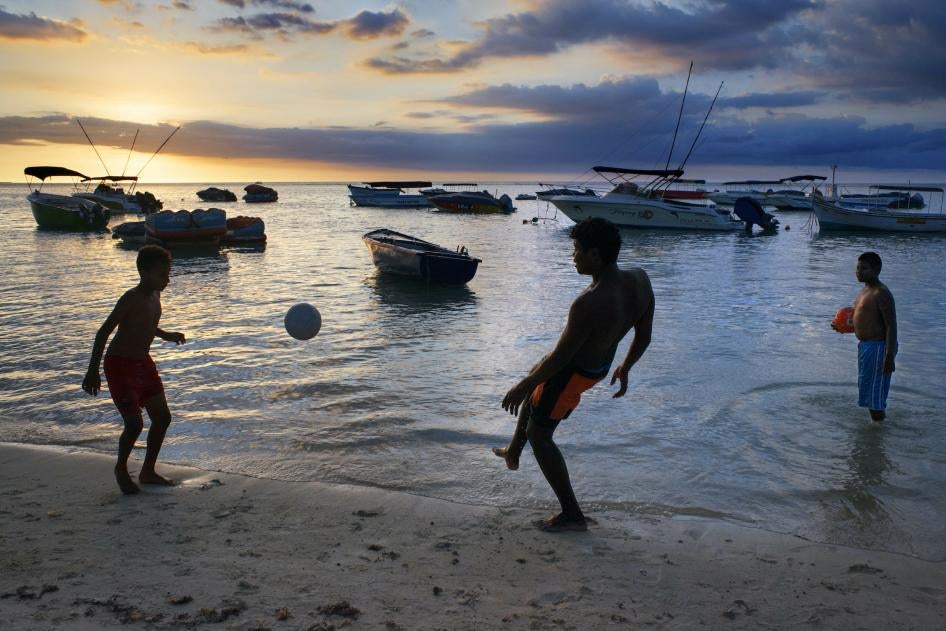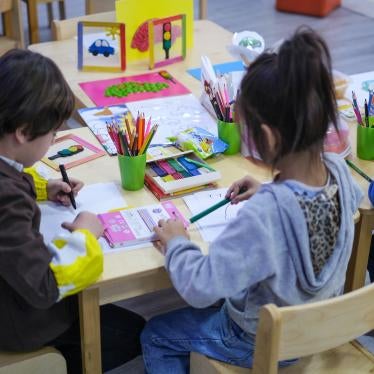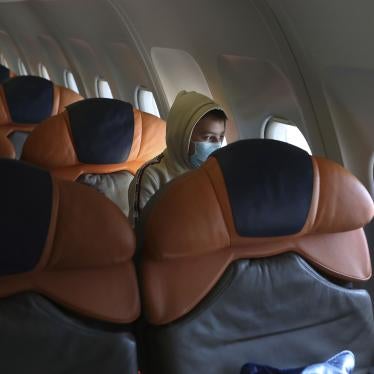Despite enormous challenges facing many children around the globe, 2022 also brought good news. As we approach the end of the year, here are 10 areas of progress for children we can celebrate:
- Zambia and Mauritius banned all corporal punishment of children, while Comoros banned corporal punishment in schools, and Cuba banned it in the home and alternative care. Sixty-five countries now prohibit all violent punishment of children. Forty years ago, there was only one.
- Cuba, England, Mauritius, Wales, and Zambia ended all child marriage. England, Mauritius, and Wales eliminated exceptions that allowed children under 18 to wed, while Cuba’s new Family Code raised the marriage age from 14 to 18.
- The World Professional Association for Transgender Health recommended deferring medically unnecessary and often harmful surgeries on intersex children until patients can consent for themselves.
- In response to student protests, the Polish president announced he would veto a bill that would limit access to comprehensive sexuality education and antidiscrimination classes in schools.
- Several governments and companies removed surveillance tracking from their online learning products, better protecting the privacy of millions of children in their online classrooms in Brazil, Canada, France, Germany, Japan, Pakistan, and the United States.
- In the US, the supreme courts of New Jersey, North Carolina, and Tennessee ruled that extreme sentences for child offenders were unconstitutional.
- Colombia, Republic of Congo, and Tunisia each endorsed the Safe Schools Declaration, bringing to 116 the number of countries that have committed to protect education in armed conflict and refrain from using schools for military purposes.
- Repatriations of children from detention camps in northeast Syria for family members of Islamic State (ISIS) suspects increased in 2022, with approximately 300 children returned to their home countries of Australia, Canada, France, Germany, the Netherlands, Russia, Tajikistan, and the United Kingdom.
- In Dublin, 82 countries pledged to avoid the use of explosive weapons in populated areas. Explosive weapons – bombs, shells, and rockets – are the leading cause of child casualties in armed conflict.
- Nigeria and Burkina Faso each agreed to end the military detention of children suspected of involvement with armed groups and ensure they receive support in reintegrating. The Houthis in Yemen signed an action plan to end the recruitment and use of child soldiers, the killing and maiming of children, and attacks on schools and hospitals. Eighteen such action plans are being implemented in armed conflicts around the world.
These areas of progress show what is possible. In 2023, governments should do much more to protect and advance children’s rights.










